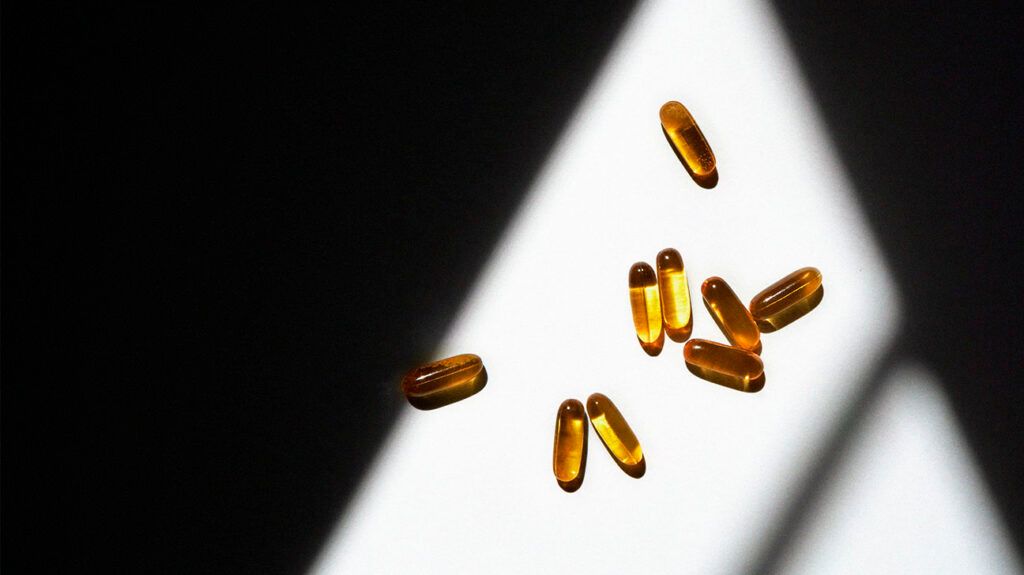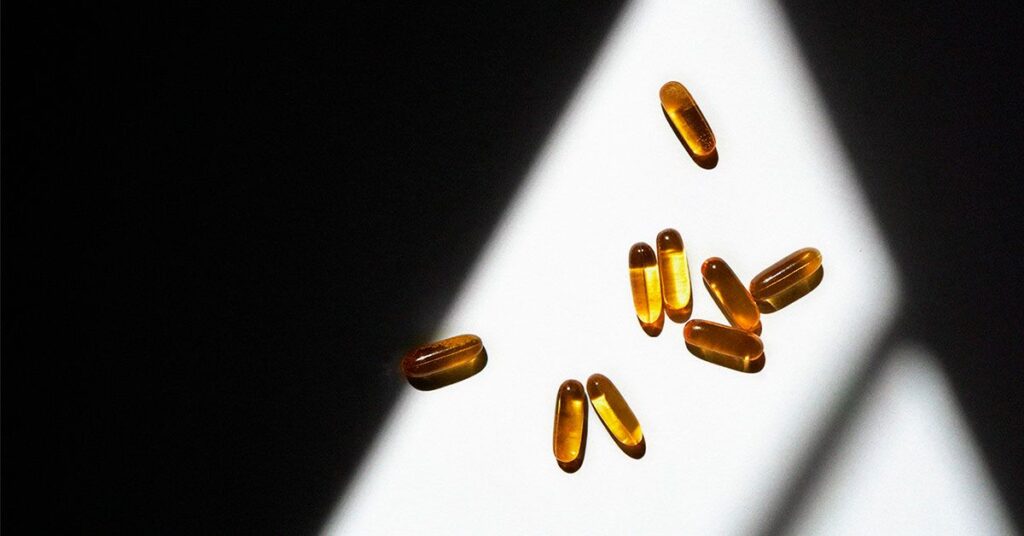
- A new study suggests that omega-3 and vitamin D supplements, when combined with regular exercise, may help slow biological aging by several months over a 3-year period.
- Researchers analysed data from the DO-HEALTH trial, which tracked over 700 older adults and found that those who followed this regimen experienced measurable benefits at the molecular level.
- The researchers said that even though the effects might seem small, they could still make a big difference for public health — helping to lower the risk of age-related health issues and improving the well-being of older adults.
According to new research, regularly taking omega-3 and vitamin D supplements can support health and mitigate aging-related issues.
In the study published in
They explained that biological aging happens at the molecular level, so even if two people are the same age, their bodies may age at different speeds depending on their overall health.
Although a reduction of a few months in biological aging may seem modest, the researchers said this could have meaningful public health benefits, including a lower prevalence of certain age-related conditions.
The researchers analysed data from the DO-HEALTH trial, which examined the impact of supplements and exercise on older adults across five European countries between 2012 and 2014.
They reviewed information from over 700 participants aged 70 and older, who were assigned either a placebo or omega-3, vitamin D, and exercise alone or in combination.
All participants were based in Switzerland, and approximately half were in good health, without major chronic illnesses or disabilities.
To assess biological aging, blood samples were collected at the beginning and end of the study and analysed using four biological clocks.
First author Heike A. Bischoff-Ferrari, MD, MPH, DrPH from the University of Basel Department of Aging Medicine FELIX PLATTER, and the University of Zurich’s Department of Geriatrics and Aging Research, Switzerland, explained the key findings to Medical News Today.
“In our prior studies in the same trial (DO-HEALTH) of generally healthy adults age 70 and older, we found omega-3 lowered the rate of falls by 10% and reduced the rate of infections by up to
“Given these health benefits, we explored whether these treatments also translated to slowing of biological aging. For this we studied the most reliable molecular markers of biological age: epigenetic clocks,” she told us.
“Our findings provide a strong signal that omega-3 supplementation (1 [gram per day] algae-based) slows biological aging in humans, and that the combination vitamin D and exercise may make this effect even stronger. Biological age was slowed by 3-4 months in 3 years.”
– Heike A. Bischoff-Ferrari, MD, MPH, DrPH
The researchers explained that these clocks measure biological aging by tracking changes in DNA methylation, specifically the addition and removal of methyl groups.
They also noted that using multiple DNA methylation clocks was a key strength of the study, as each clock captures different aspects of the aging process.
One of the biological clocks used in the study, PhenoAge, indicated that older adults who took 1 gram of polyunsaturated omega-3 fatty acids from algae, combined with vitamin D (2,000 international units per day) and 30 minutes of exercise three times a week, slowed biological aging by approximately 2.9 to 3.8 months over 3 years.
While omega-3 alone reduced biological aging in three of the epigenetic clocks analysed, the combination of all three interventions had an even greater impact.
“To date, one of the most critical questions in the field of slowing biological aging is whether a treatment exists that can effectively rejuvenate humans not just mice,” Bischoff-Ferrari said.
“Our findings provide a strong signal that omega-3 slows biological aging in humans, and that the combination vitamin D and exercise may make this effect event stronger. While the effects documented (3-4 months rejuvenation of biological age) appear small, if sustained, may have relevant effects on population health.”
– Heike A. Bischoff-Ferrari, MD, MPH, DrPH
Steve Horvath, PhD, another lead researcher involved, said that “the results in DO-HEALTH for the prevention of infections, falls, cancer and pre-frailty translated to slowing biological aging in the same trial.”
“This supports these three public health strategies as a combined solution at the public health level to extend health span in older adults. Further, these strategies are affordable and safe as shown in DO-HEALTH over a 3-year follow-up,” Horvath explained.
“As a next step,” he told us, “we plan to use DO-HEALTH as a validation platform for novel measures of biological aging and just built the global health span extension consortium to advance the concept of combining feasible life-style changes that play on different mechanistic pathways of biological aging and become powerful in combination.”
The researchers noted that although the treatments slowed down aging at the molecular level, there is no clear proof that this leads to a longer life or better health.
In addition, previous findings from the DO-HEALTH trial showed that omega-3 supplementation reduced the risk of falls by 10% and infections by up to 13% compared with those who did not take the supplement.
Further research has also suggested that a combination of omega-3, vitamin D, and exercise may lower the risk of cancer.
With this in mind, some experts have cautioned against drawing broad conclusions from the findings, as further research is needed.
Clifford Segil, DO, a neurologist at Providence Saint John’s Health Center in Santa Monica, CA, not involved in this research, told MNT that “he likes to see studies which test combination vitamin therapies for health and in clinical practice vitamin D is often given with calcium.”
“I enjoyed seeing these researchers try to determine if Vitamin D with omega-3 improved biological age with exercise. I would have like to see the study broken into 3 parts which would have been biological age affects from Vitamin D and omega 3 supplementation. A second part confirming how much exercise decreased biological age with new next generation tests. And then a third part to confirm that both together worked better than alone.”
– Clifford Segil, DO
What do these findings mean for patients? While further research is needed, tried and tested strategies can still be implemented.
“Everyone should consider exercising as we age as it will help us stay young,” Segil said. “I often tell my patients that ‘if you don’t use it, you will lose it’.”
However, “using the right combination of supplements may be helpful and someday the use of supplements may be evidence based,” the physician suggested.
This article was originally published by a www.medicalnewstoday.com . Read the Original article here. .

